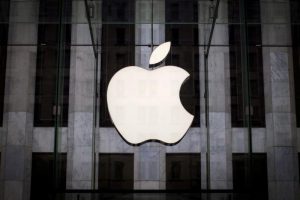 Smartphone makers Samsung and Apple will face off again in court over a patent dispute which dates back to 2011. In the latest chapter the two tech giants are trying to determine the amount that Samsung owes Apple in financial damages after the former was found to have infringed on the design patent of the original iPhone.
Smartphone makers Samsung and Apple will face off again in court over a patent dispute which dates back to 2011. In the latest chapter the two tech giants are trying to determine the amount that Samsung owes Apple in financial damages after the former was found to have infringed on the design patent of the original iPhone.
Late in 2016 the judgment of close to $400 million that Apple had been awarded over the allegations that the South Korean smartphone maker had copied the design features of the iPhone was rejected by the Supreme Court of the United States. The award was calculated based on the profits that Samsung had garnered after selling the smartphones which it was alleged to have copied. However this figure had been cut from the original figure that a jury had awarded in 2012 – $1.05 billion.
Full profits
This comes in the wake of a class action suit being filed against Apple over the design of the MacBook Pro and MacBook keyboards with consumers complaining that the keys have a high propensity of getting stuck. There have been complaints since the laptops were released late in 2016 and a petition demanding that Apple recall the devices has so far received more than 21,000 signatures.
Keyboard lawsuit
“Because of the new keyboard design, consumers report that fixing affected keys requires replacing the whole keyboard, which costs $700. Because typing is the primary purpose of laptops, over time, consumers have become more and more frustrated with the keyboard defect,” the plaintiffs’ counsel, Girard Gibbs, said.
The keyboard in question was introduced by Apple in 2015 and was initially rolled out on the MacBook before it was also adapted for the MacBook Pro in late 2016. With the new design of the keyboard Apple was aiming to make more responsive and stable keys when pressed. However according to plaintiffs the result has been a defective product since the accumulation of debris or dust around or under a key results in the keystrokes failing to register. The plaintiffs also claim that cleaning the debris and dust from the keyboard is not easy.
